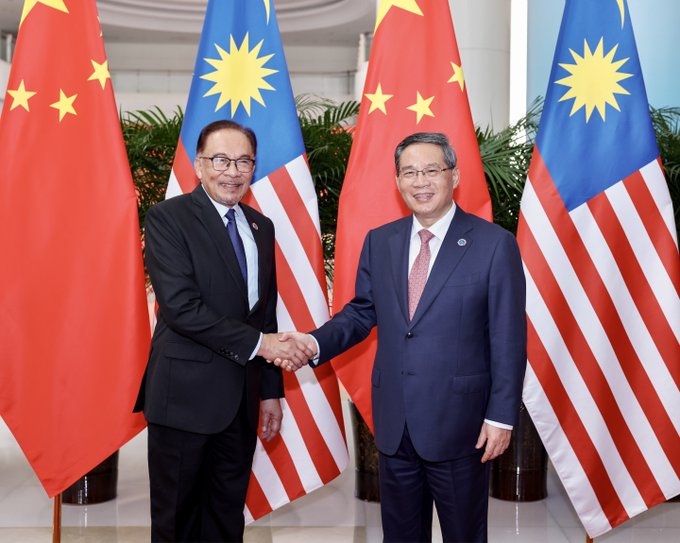The lure of Brics advances among Asean countries
Thailand and Malaysia are the latest two nations to express interest in the China-sponsored global forum. According to Premier Anwar Ibrahim in Kuala Lumpur, the decision to join has already been made. More cautious are the Philippines and Vietnam, which fear a further strengthening of Beijing's political hegemony also in maritime disputes.
Bangkok (AsiaNews) - A growing number of Asean countries are considering joining the Brics or have expressed an interest in doing so in the future. While Laos and Myanmar had already declared their interest last year, in January the head of Indonesian diplomacy, Retno Marsudi, indicated that Jakarta is assessing the possible benefits of joining the Brics, while Vietnam is only "closely monitoring the path of entry" for now.
A formal request was reportedly made in the second half of June by the Thai Foreign Ministry. And Malaysia openly expressed its intention to join the group on 16 June, only three days before Li Qiang's visit, the first by a Chinese premier since 2015. A decision also emphasised by the head of the Malaysian government, Anwar Ibrahim, who, interviewed by the Chinese news portal Guancha, confirmed that 'the decision has been made' and that the procedures will be started soon.
Other governments of the ten members of Asean, the Association of Southeast Asian Nations, have so far expressed themselves more cautiously with two of the founders, the Philippines and Vietnam, remaining at the window. Among the reasons, also shared by others and by many experts, is the fear that accession will lead to excessive dependence on the interests of the major partners and in particular of China, which is able to impose a large part of the choices and directions.
A weight that is by no means balanced by the economic consistency of the other co-founders in 2002 (Brazil, India and Russia) and of the new accessions, starting with South Africa in 2010 to which Egypt, Ethiopia, Iran and the United Arab Emirates have also been added since 1 January of this year. While the combined GDP of the members is currently worth USD 28,500 billion (around 28 per cent of the world economy), China alone is worth USD 18,500 billion. But it is also its strategic prominence, the extent of its interests and a powerful military apparatus that make China's needs a priority for the entire bloc, which in turn - with closer relations also mediated for many by ideological interests - seems from the outside to welcome Beijing's leadership with few distinctions.
The possibility of taking its potential to a higher level in 'an alternative circuit of global governance leadership', as suggested by Alan Chong, professor at the Rajaratnam School of International Studies in Singapore, attracts many. But in a time as full of unknowns and tensions as the current one, the risk is that the Asean countries - territorially close to the People's Republic of China and connected at various levels to its economy - will not be able to oppose territorial claims that, in addition to Taiwan and areas of the East China Sea, also include much of the South China Sea, an area of specific economic interest for many South-East Asian nations.
12/02/2016 15:14







.png)










